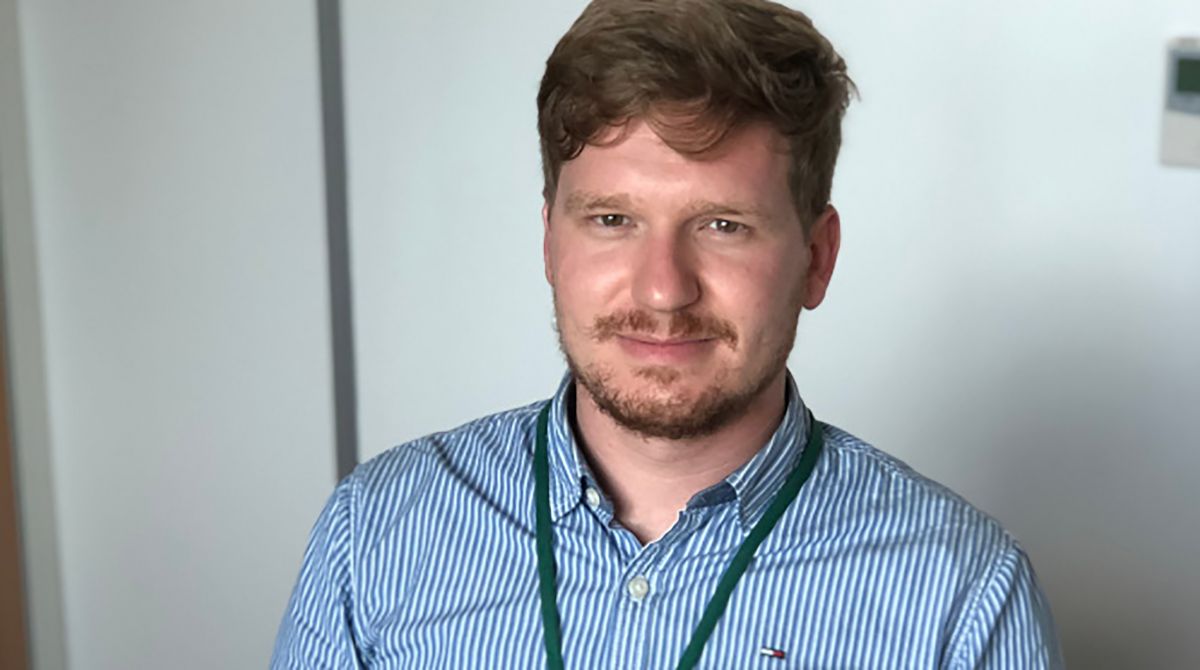Kingston University masters graduate joins national Covid-19 testing effort by supporting scientists at UK Biocentre
Posted Wednesday 14 October 2020

After completing his MSc in cancer biology earlier this year, Mergim Krasniqi started volunteering at the UK Biocentre in Milton Keynes in May, where he has been supporting scientists in the lab processing tests for Covid-19. Alongside his role at the Lighthouse Lab, he has been working part time at a pharmacy as a trainee pharmacist advisor and completing applications for a PhD.
Lighthouse Labs were set up across the country through a partnership between the Department of Health, Medicines Discovery Catapult, UK Biocentre and the University of Glasgow. Their development has been closely supported by both the NHS and Public Health England. Below, Mergim talks about the experience of being part of the volunteer effort to meet the challenge of the Covid-19 pandemic.
At Kingston University I ran an independent project for my dissertation on cancer research. I also did a six-month internship in a laboratory hospital in Kosovo, focused on blood testing and analysis. The combination of these experiences means I'm able to work with different lab techniques and under lab hoods, and taking care when handling samples of viruses. The techniques we use at the UK Biocentre Lighthouse Lab for Covid-19 swab tests are very similar to those used in my previous work, but on a much bigger scale.
At the lab I have worked in a few different sections to familiarise myself with the various processes and equipment. I've been working on triage when samples arrive at the facility. This involves unboxing the samples and checking that the swabs can be tested, including barcodes to match the sample with a patient and to see that the lids are properly attached - and manual and automated pipetting to deactivate the virus. I'm now being trained in PCR, a technique to amplify the genetic material in a swab sample so it's big enough to analyse.
A new motivation
Compared to the other work I've done, volunteering at UK Biocentre as part of the effort to tackle Covid-19 has a different motivation for me, given the difficult circumstances and the fact we are dealing with a pandemic. I feel I have more responsibility here and more motivation, because lots of people need us and are waiting for results. And there's a moral duty - I am able to apply my skills and knowledge so am determined to make my own contribution.
From the very start of this pandemic I was looking to volunteer, whether at hospitals or in labs. When I found the UK Biocentre opportunity I knew I wanted to join - the scale is beyond anything I've ever seen.
All levels of experience
One of the best things about UK Biocentre is working with people who have different levels of experience. We all have scientific backgrounds - but the range is amazing. There are people at every level, from undergraduates to senior lecturers. Working alongside experienced and eminent professionals is a privilege, especially as there's no real hierarchy in the labs. It means everyone feels comfortable to ask questions.
Every day at the Lighthouse Lab you learn new things and you have to deal with different kinds of situations. At the end of the shift you feel really tired, but it's rewarding: you did something for science, your community and for people in need.
- Find out more about the UK Biocentre Lighthouse Lab project.
Contact us
General enquiries:
Journalists only:
- Communications team
Tel: +44 (0)20 8417 3034
Email us



